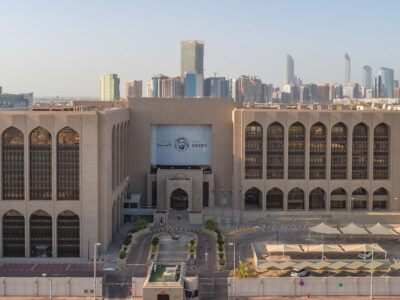Concerns are rising among banking employees in Lebanon that their jobs may disappear as the country’s ongoing economic crisis continues to deepen.
Banking staff and managers have told Arabian Business that they feel they are being “held captive by fear” about their careers for the first time since the end of the civil war in Lebanon in 1990.
“We come to the bank every day and we don’t know what awaits us. Every day we hear about layoffs in the banking sector, or unpaid leave offers to colleagues,” one bank employee told Arabian Business while a branch manager for one of Lebanon’s major banks said the more than 300 banking branches are expected to close by early next year.
The manager, who spoke on to Arabian Business on condition of anonymity, said: “The major lenders, which have the largest number of branches spread over all Lebanese territory, closed about 20 percent of them, especially the branches that they don’t own but rather rent them. The total number of bank branches in Lebanon is expected to decrease from 1,100 to less than 800 branches at the beginning of 2021.”
He added that “the policy of reducing expenditures has developed a progressive plan to reduce the number of workers in the sector, in a smooth manner, which does not constitute a social shock, as it was initiated in agreement with a number of employees from older age groups, to submit voluntary resignations, in exchange for financial compensation”.

“Banks are losing more than other sectors and their losses are likely to rise more in the next stage,” he claimed, adding that one of the 10 largest banks, which owns more than 80 branches, has laid off 500 employees, while another bank within the same group laid off 200 employees.
He said about 1,500 staff out of a total banking workforce of 26,000 have so far lost their jobs.
He feared the number of banking sector layoffs will intensify next year when banks become obligated to implement central bank rules to increase their capital by 20 percent or face closure.
Lebanon’s central bank urged banks in August to increase their capital by the end of February 2021.
With the onset of the economic and political crisis in October 2019, banks established a policy to reduce operating expenses by closing branches or by dismissing their workers and employees. It also sold its units and assets abroad.
Eight Lebanese banks operating in Iraq have decided to close their operations there, while Bank Audi and BLOM Bank are negotiating to sell their activities in Egypt.
BLOM Bank, Bank Audi and Byblos Bank also withdrew global depositary shares (GDSs) from European stock markets such as the Luxembourg Stock Exchange and the London Stock Exchange.
Lebanese banks are continuing to experience uncertain operating conditions and are focusing their efforts on provisioning against potential losses tied to their private sector lending portfolios and sovereign Eurobond holdings.








